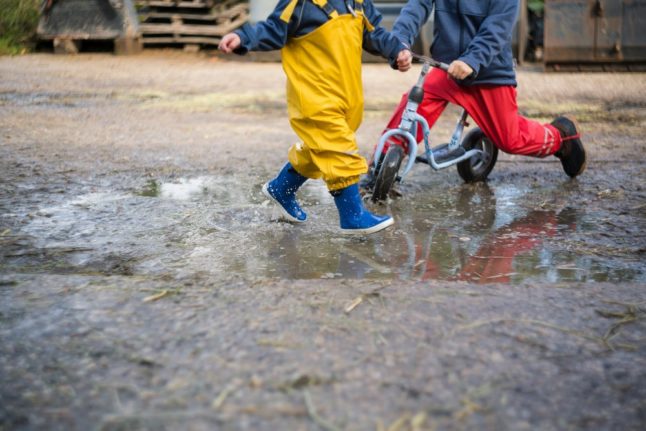The committee, Klimaborgertinget or “Residents’ Climate Parliament”, worked on the recommendations for several months before submitting them to Copenhagen Municipality, according to a municipality press release.
The 30-person strong committee has come up with “many” suggestions which it says will make a positive impact on the capital’s environment, the municipality said.
These include more repair workshops at recycling centres, plant-based food at municipal canteens, more shared living (bofælleskaber) for elderly and young people and car-free bicycle boulevards.
The recommendations were made with the assistance of environmental experts.
READ ALSO: How to recycle a used mattress in Copenhagen
Municipality officials are obliged to consider each of the requests but not to implement them.
“I’m very grateful that so many Copenhageners chose to be part of the climate consultation and that those who were selected spent so much time on the work,” the councillor for environment at Copenhagen Municipality, Line Barfod, said in the statement.
“Us politicians really need to hear from Copenhageners about which measures make sense for their everyday lives,” she said.
READ ALSO: Should you choose the ferry between Oslo and Copenhagen over flying?
The climate council for residents was set up under the city’s 2023 budget. A 2035 Copenhagen Municipality climate plan meanwhile seeks to halve emissions from the city’s residents by that year.
“There have been a lot of good proposals, and I can promise now that I will work to make several of them reality,” Barfod said.
The recommendations made by the residents’ council fall into three main categories in which they feel emissions related to human consumption in the city can be reduced: food, transport and housing.
This could mean more shared economy such as housing communities or shared transport, increasing bicycle transport and facilities or more plant-based food.
Other broad recommendations include more local food produce and less import, better national and international public transport links, more climate regulation and reduced food waste, and sustainable construction.
“But there are also some fun and surprising proposals about, for example, using challenges and gamification to engage more people, which I hadn’t even thought of,” Barfod said.
The use of a residents’ is a tested method of democratic involvement and was carried out in accordance with Organisation for Economic Co-operation and Development (OECD) principles, the municipality said in the statement.
This ensures “arm’s length” separation between the work of the council and the interests of city politicians and administration, it said.
More information about the Klimaborgerting and the recommendations of the residents’ council in full can be found on the Copenhagen Municipality website.



 Please whitelist us to continue reading.
Please whitelist us to continue reading.
Member comments